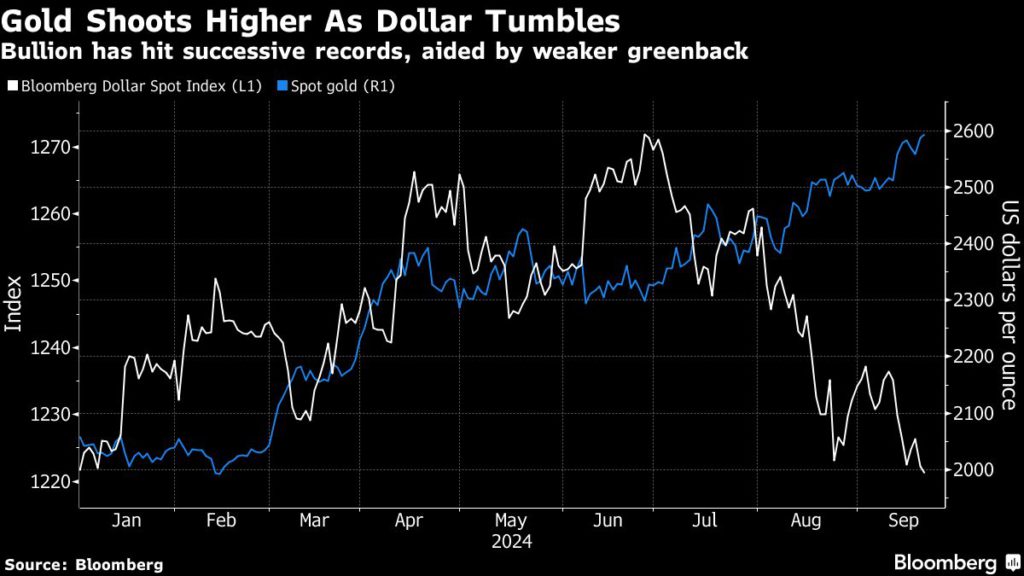“We still likely have upside, as the dollar continues to weaken, interest rates are coming down and then there’s a healthy dose of geopolitical uncertainty that makes gold an attractive option for investors,” said Miskin, who is co-chief investment strategist at the fund.
Robert Crayfourd, who co-manages the CQS Natural Resources Growth & Income fund as well as the Golden Prospect Precious Metals fund, said support would also come from ETFs, which can magnify market moves.
“ETFs had been steady sellers for 18 months, and have now been steadily adding for the last three months,” Crayfourd said. “And that’s where I think that rate cut has a bigger impact.”
Big banks also see gold gaining more ground. Goldman Sachs Group Inc. is forecasting prices to rise to $2,700 an ounce by early next year, while UBS Group AG sees them hitting that mark by mid-year. Citigroup Inc. is even more bold, predicting back in April that bullion could break the $3,000 an ounce barrier by mid-2025.
Still, some investors see the market taking a breather, with the Fed pivot also sparking a short-term preference for riskier assets, including small-cap US stocks or other equities.
“We reduced some of the overweight for gold ahead of Fed’s announcement — we don’t have any further plans to change our position,” said Darwei Kung, head of commodities and portfolio manager at DWS Group. “We are still positive for gold in the medium to longer-term,” he said.
Others warned that the Fed’s easing cycle, which typically benefits non-interest paying gold, may be shorter and less dramatic than many anticipate.
“Too much easing is priced right now, levels which resemble recessionary developments which we don’t think will play out,” George Efstathopoulos, a portfolio manager at Fidelity in Singapore, said. “If some of those cuts eventually get priced out, we could see a correction on gold prices.”
But that may still not be enough to tarnish gold’s shine, according to Grant Samuel Funds Management investment strategist Stephen Miller.
“There’s been a number of instances in the last two or three years where markets have got ahead of themselves on rate cuts — but gold didn’t really have a setback through all of that,” Miller said. “It’s not just about interest rates.”

Deeper structural concerns about the US deficit ahead of the November election and simmering geopolitical conflicts in Ukraine and Middle East will continue to drive investors to buy more bullion, according to Gary Dugan, chief executive officer at Global CIO Office in Singapore.
“Remember when people used to say ‘oh, you know, gold’s above $2,000, I’m not going to buy anymore’?,” said Dugan. “Now, they just want it.”
(By Sybilla Gross and Yvonne Yue Li)










